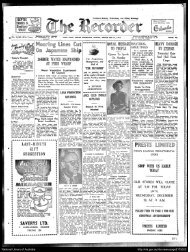Sample Prompts for the STAT Written English
Sample Prompts for the STAT Written English
Sample Prompts for the STAT Written English
Create successful ePaper yourself
Turn your PDF publications into a flip-book with our unique Google optimized e-Paper software.
25 According to Passage II, <strong>the</strong> most difficult task with which memory is confronted is to<br />
A recall material from <strong>the</strong> long-term memory.<br />
B extend <strong>the</strong> capacity of <strong>the</strong> long-term memory.<br />
C differentiate between true and false material stored in <strong>the</strong> long-term memory.<br />
D ensure that material from <strong>the</strong> short-term memory is safely stored in <strong>the</strong> long-term memory.<br />
26 According to <strong>the</strong> description of memory systems in Passage II, if you can remember what you ate <strong>for</strong><br />
dinner last Sunday, this memory is stored<br />
A as sensory in<strong>for</strong>mation.<br />
B in your long-term memory.<br />
C in your short-term memory.<br />
D in a part of <strong>the</strong> memory which is not covered by any of <strong>the</strong> above categories.<br />
Question 27 requires <strong>the</strong> comparison of Passages I and II.<br />
27 Compare <strong>the</strong> different accounts of memory given in Passages I and II.<br />
Passage I<br />
A suggests that our ability to remember is independent of our environment; Passage II suggests that <strong>the</strong><br />
capacity of memory is determined by <strong>the</strong> nature of <strong>the</strong> event which is to be remembered.<br />
B considers all memory as accessible in <strong>the</strong>ory, but in practice subject to limitations; Passage II<br />
acknowledges <strong>the</strong>oretical limitations on memory, but sees no practical restraints.<br />
C considers <strong>the</strong> capacity to remember as subject to individual variations in intelligence and creativity;<br />
Passage II asserts that all people have an equal capacity to remember.<br />
D considers that <strong>the</strong> main problem with memory is to distinguish relevant from irrelevant in<strong>for</strong>mation;<br />
Passage II sees storage of in<strong>for</strong>mation as <strong>the</strong> only difficulty.<br />
14











